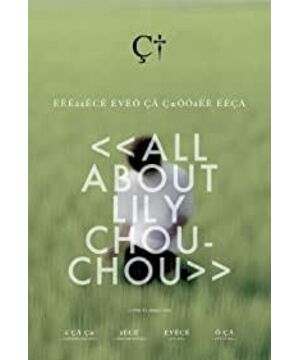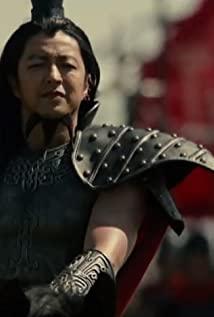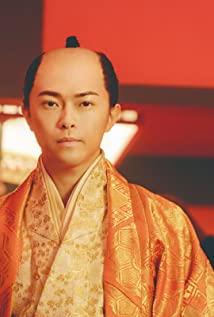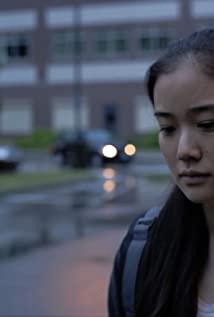If I had to describe Japanese culture in one word, I would choose "extreme". Perhaps because the entire social environment in Japan is too oppressive, everything can only be expressed when it is about to explode, so what is expressed has been rendered to the extreme.
The same is true for Japanese films and Japanese film directors, which can be purely like Hirokazu Eda, or "perverted" like Takashi Miike. Similarly, Japanese youth movies are different from those in other countries, and there are even proper nouns such as "Japanese youth".
The movie "All About Lily Zhou" is synonymous with the most extreme cruel youth to me.
A dark sky
The beginning of the movie is actually very good. In the middle of the green field, stood a boy of the best age, listening to music with headphones, the sky above his head was shining brightly, it seemed that this was the best look of youth.
But soon, the sky turned dark.
The boy in the middle of the field is called Yuichi. Contrary to what he looks like at the beginning of the movie, in reality he always keeps his head down and doesn't speak. He even stole a record in a record store and was called by the boss to be a teacher. He kept his head down and said nothing. No matter where the camera cuts to him, he gives such a gloomy feeling. Most of the time, he listened to music silently with his head down like this, except...except when Hoshino bullied him.
The movie goes back in time, and we learn that Hoshino, the bully, was also a bullied once. As two weak people in the group, he and Yuichi naturally came together and became one of the few friends of each other. They even teamed up with a few others to grab money and go on vacation to Okinawa during the holidays. But after returning from Okinawa, Hoshino seemed to be a different person, and he bullied others like the people who bullied him before, even Yuichi didn't let go, so there was a scene where Yuichi was humiliated by Hoshino at the beginning of the movie...
The story then went out of control. Yuichi was not the only victim. There were also two girls who were cruelly treated by Hoshino: Kuno and Tsuda. After Kuno was raped by Hoshino, he shaved his head to prevent disasters from coming again; Tsuda was filmed nude by Hoshino, forced to sell his body to other men, and finally chose to commit suicide.
At this point, the story seems to have reached the dark bottom. Even if any of the above plots are taken out alone, the word "cruel" can be fully interpreted.
But only cruel cruelty is not extreme enough.
2. Hope and beauty
From the beginning to the end of the film, almost all the shots are dark and there is no trace of sunlight, but the director still added some hope and beauty that youth should have in the film.
1. Love: Love in youth should be the purest, as shown in the director's other film "Love Letter". Hoshino and Yuichi fell in love with a lovely girl named Kuno at the same time. This relationship has added the most wonderful touch to their youth--the peeking while passing by on the road, the sneaking approach on the bus, all make this relationship seem shy and sweet, like a faint blush on a girl's face.
As Hoshino said in his blog: She and I have been sitting together, in the fifth grade of elementary school. During the time before I changed schools, on the day of my transfer, she gave me Philipa's "Manic" And Melancholy", although I didn't understand it at the time, but one day after entering middle school, I suddenly wanted to listen to it, maybe because of the reunion in middle school, but now I'm not in a different table or class, and I don't even have a chance to speak. , Completely strangers, does she still like Lily Zhou up to now? Their feelings are restrained and forbearing, and there is almost no chance to express them, but it is also the most beautiful emotion under that gloomy sky.
2. Idols: At the same time, as said in the blog above, besides the people they like, they also have idols. Adolescent boys and girls have not yet formed an understanding of the problem of "who am I", and idols have become a remedy for this problem. By understanding everything about idols, idols have become their own substitutes. Both Yuichi and Hoshino see Lily Zhou as "the creator of the universe, the ether (the upper layer of the sky)." If their world is dark, then, as someone said in the blog post "Ether healed all my wounds", Lily Zhou became one of the sources of light in their lives. They heal the pain by listening to songs and chasing stars.
Therefore, at Lily Zhou's concert at the end of the film, the encounter between the two seemed inevitable.
3. Friends: Yuichi grew up in a broken family environment, and has always been marginalized in the group; Hoshino was also forced to transfer schools because of being bullied. Later, Hoshino became the leader of a school violence group. Never had a real friend.
But they had friends in the online world. They both found a confidant on a blog about Lily Zhou. On the Internet, they communicated each other's gray and hopeless world, comforted each other, and talked about the philosophy of ether. In reality, the words that no one can tell have all found their way out here. Aside from Lily Zhou, the friends that seem to be found on this blog are the only real hope the two can touch.
So they made an agreement with each other's netizens to meet at Lily Zhou's concert to bring this friendship into reality.
3. The extreme cruelty
Cruelty alone is not enough to be called the ultimate, and the ultimate built by Shunji Iwai in the movie is by no means just covering up the only glimmer of light.
Hoshino witnessed several deaths during his vacation in Okinawa, and realized that death was nothing more than that. After returning home, he was no longer cowardly. He soon changed from being bullied to bullying, and Hoshino became the type of person he hated the most. Under the cold exterior, endure the inner suffering.
Yuichi obeyed Hoshino's order and took the girl he had a crush on, Kuno, to a warehouse in the suburbs; while Hoshino was in the warehouse and ravaged Kuno, his first love. Yuichi burst into tears outside the warehouse, but there was nothing he could do. For Hoshino, since she can't get it, she will be destroyed. What was destroyed at the same time was the beauty that remained in his heart and Yuichi's heart.
Lily Zhou and the bosom friend on the blog became the only hope left. They both agreed with Philipa and Qing Mao to meet at the door of Lily Zhou's concert. The green cat's token of meeting is a green apple. Yuichi was full of expectations, but when he saw the man holding the green apple at the concert door, the green cat, he found that the man turned out to be Hoshino... The lonely person, the one who gives him the only hope in life, is the one who makes his life dark.
Hoshino even destroys the final straw by stealing Yuichi's concert tickets, preventing him from getting in.
All the light disappeared.
Yuichi waited at the concert gate until the concert was over, started a riot in the crowd, and eventually killed Hoshino in the chaos.
So far, all the constructed beauty in the film has been destroyed by the creator himself. Yuichi personally sent love to the grave of youth, and Hoshino himself made this grave; the blue cat built Philipa's hope, but it also turned hope into despair, and Philipa finally killed this hope.
Cruelty was pushed to the extreme.
4. Form and Symbol
1. Color: The tone of the entire film is dark, if not rainy, it is cloudy, and even the indoor lighting is dim twilight. The only bright colors are probably the green of the rice field where Yuichi lives and the green apple on Hoshino's hand. Green is the color of hope, but it was ruthlessly broken after all.
2. Music: There are two main soundtracks for the film, the ethereal "Lily Zhou" songs and Debussy's piano pieces, which give the film a psychedelic and sad color. Neither type of music is as strong as rock, but instead suppresses the emotion lightly, and finally brings the story to a climax at the end.
3. Photography and editing: The film uses a lot of hand-held lenses, which are shaky; the editing points of the film are not very closely matched, complementing the plot of the film, reflecting the restless youth of the teenagers in the film.
4. Structure: The narrative sequence of the movie is similar to that of the novel "Wuthering Heights". The beginning of the narrative is three-quarters of the way the story develops, and then it goes back to the very beginning of the story and continues to the end. Such a narrative structure makes the film suspense at the beginning, and sets the gloomy emotional tone of the whole film, so that the emotion can be successfully brought to the highest point at the end of the film.
In addition, the narrative structure of the film is also very unique. The director divides the film into bright lines and dark lines. The bright lines are stories that take place in reality, while the dark lines are not events in reality, but Philip (Yuichi) and Ao Mao (Hoshino). , and some other Lily Zhou fans commented on a forum about Lily Zhou. This arrangement is very ingenious. On the one hand, it combines the textual form of literary works with the images of the film, so that we can see the true feelings of the characters that cannot be expressed in the form of images; on the other hand, at the end of the film, Yuichi recognizes When it came out that the blue cat was Hoshino, the two clues overlapped, and the light and dark were intertwined, which also doubled the cruelty in the movie.
5. Symbol: The scene in the movie that impressed me the most was not Yuichi killing Hoshino, but at the door of the concert, Yuichi held up the Coke he bought for Hoshino and watched Hoshino throw away his ticket. Others knocked over. All the loneliness and hopelessness are in this cup of overturned Coke, which can no longer be saved.
If hope is that green green apple, then the so-called "cruel youth" is this knocked-over Coke.
View more about All About Lily Chou-Chou reviews











